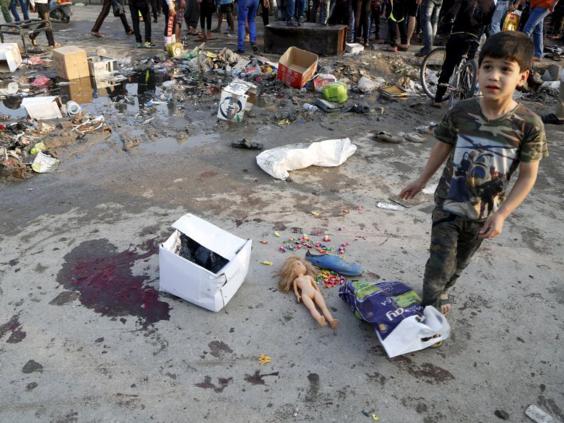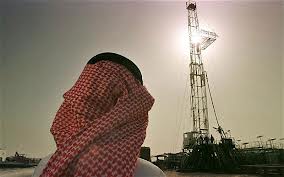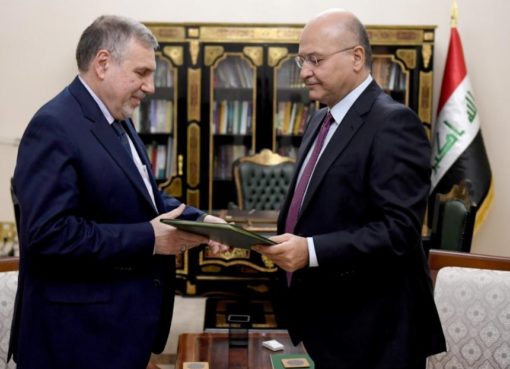Islamic State prepares its murderous bombings with chilling care and attention to detail. Several months ago, the Iraqi security forces discovered a plan to bomb al-Khadamiya, an ancient quarter of Baghdad at the centre of which is one of the holiest Shia shrines. Isis operatives first spent a month watching the checkpoints protecting the district, looking for weaknesses. Then they sent a woman through the checkpoint they had chosen as the most vulnerable, to look at it more closely but without carrying explosives. Soon afterwards she was sent again, but this time carrying a child’s toy under her robes. Nobody stopped or questioned her, so Isis had her do the same journey, but this time with a much bulkier toy which the security men at this checkpoint should have noticed but did not.
The next occasion the would-be suicide bomber entered al-Khadamiya it would have been on a one-way mission to blow herself up and kill as many people as possible in the area of the shrine. Fortunately, it never happened because the Iraqi security forces received some quite separate intelligence about what was intended, and arrested the bombing team. The elaborate nature of the preparations for the attack were typical of the mixture of fanaticism and expertise with which Isis carries out its terrorist acts.
Safa Hussein al-Sheikh, the Deputy National Security Adviser in Baghdad and one of the most experienced and cool-headed security experts in Iraq, told me the story in an interview in Baghdad, to illustrate the difficulty of stopping Isis slaughtering civilians. During the 10 days I had been in Iraq, two suicide bombers blew themselves up at a Shia mosque in the Shuala district, killing at least 15 people, and a further 73 people were killed in a market in Sadr City. An Isis force fought a pitched battle in Abu Ghraib in west Baghdad, using suicide bombers and fighters in vehicles equipped with heavy machine guns.
The purpose of these assaults is in keeping with Isis strategy of masking failure on the battlefield by targeting soft civilian targets. It sharpens differences between Shia and Sunni with the intention of forcing the Sunni community to look to IS as its defenders. Mr Sheikh says that the military aim of Isis in carrying out these atrocities “is to spread out the security forces so IS can get superiority in numbers in one particular sector”.
Two suicide blasts hit Baghdad’s mainly Shi’ite district of Sadr City (Reuters)
Mr Sheikh does see Isis as getting weaker after losing several cities and much of Salahuddin province, but it is by no means defeated. He says that overall it has between 20,000 and 30,000 core combat fighters, the equivalent of special forces in conventional armies, and they are backed up by a further 40,000 to 50,000 fighters who are less well-trained and ideologically committed. Isis has the capacity to replace casualties by recruiting within the self-declared caliphate, but “they cannot recruit foreign fighters who are at the core of their military effectiveness”.
Some 85 per cent of Isis troops in Iraq are Iraqi, say other security sources in Iraq, but a limited number of foreign jihadi units have been behind many Isis successes in the past.
Iraqi security officials I spoke to in Baghdad all downplay the idea of an attempt to recapture Mosul this year, emphasising the political and military problems there. More immediate targets will be Hawijah and al-Shirqat further south. Mr Sheikh said that “it will be a long road to Mosul”. He points out that even during the counter-uprising within the Sunni community against al-Qaeda in Iraq in 2006-07, this never spread to Mosul. In any case, he says that Isis can never be decisively defeated “so long as they have strategic depth in Syria”.
The bombings in Shuala and the fear the Mosul dam might break made the mood in Baghdad more edgy, but not for long. People in the capital may not enjoy living in a country which is in a state of permanent crisis, but they have become used to it over the past half-century. Isis is not on the verge of defeat, but it is on the retreat and no longer capable of launching an all-out attack on Baghdad as it might have done in the summer of 2014. In fact, Mr Sheikh says that the most dangerous crisis facing Iraq is not military but economic and political, because the country is running out of money thanks to the low price of oil and the weakness of the government.
Source: Independent, March 6, 2016
http://www.independent.co.uk/news/world/middle-east/is-it-isis-or-the-economy-that-will-ruin-iraq-a6914681.html








Comment here